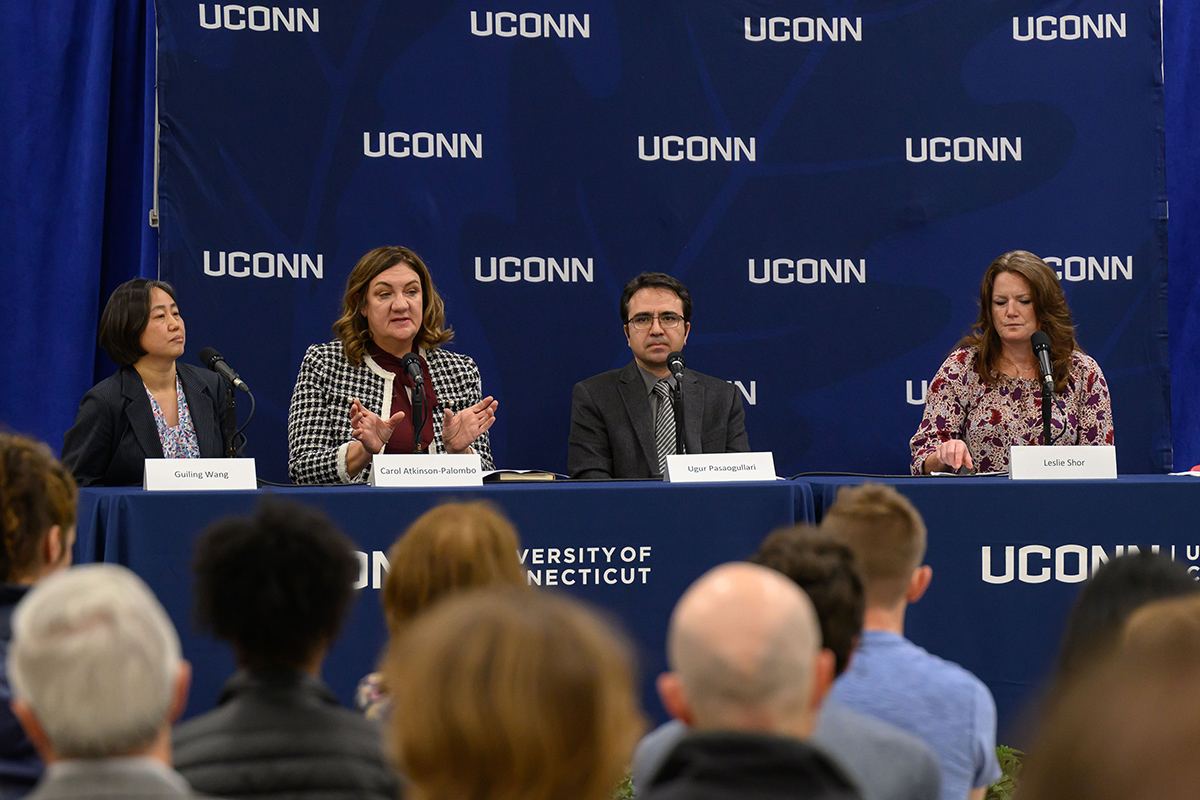Research
The Department of Geography, Sustainability, Community, and Urban Studies houses a community of natural scientists, social scientists, and humanists. They conduct groundbreaking research and earn high-profile awards, grants, and publications.

Our Priorities
Spatial Analysis of Social Issues
Using geographic concepts and quantitative and qualitative methods of spatial analysis, our faculty explores the complex social processes connecting people, places, and the environment across space. We have a wide range of topical interests where we investigate the interaction between spatial processes and spatial inequalities, including:
- Sustainability.
- Racial and gender disparities.
- Geopolitics.
- Transportation.
- Health and medical issues.
- Resilience and vulnerability to natural hazards.
- Indigenous perspectives across the Americas.
Geographic Information Science and Systems
Our faculty focuses on spatial statistics, GIS cyberinfrastructure, and remote sensing, as well as their applications in research on land use/cover change, health, and regional development. Our strengths include developing advanced spatial statistics, spatial modeling, spatial data analysis, and geocomputation technologies. We develop and apply these advanced geographic information technologies in:
- Public health.
- Resource and environmental evaluation.
- Landform and landscape evolution.
- Land use/cover change.
- Regional development.
- Social-economic geography.
- Urban studies.
- Indigenous cartographies.
- Geospatial Artificial Intelligence (GEO-AI)
Earth System Science
We focus on understanding interactions within and between the atmosphere, hydrosphere, geosphere, and biosphere. Our faculty’s expertise includes:
- Climate modeling and analytics.
- Paleoclimate analysis.
- Sedimentology.
- Geomorphology.
- Biogeography.
We strive to understand the Earth’s climate system and its history, as well as the mechanics and evolution of mountains and landscapes around the world.
Human-Environment Dynamics
We use observations, geologic records, climate models, and analysis of political and economic trends to understand the interplay of climate and human activities in the past, present, and future. Our faculty evaluates societal impacts and adaptation strategies for the coming decades. Our expertise includes the implications of climate dynamics on regional spatial scales, including:
- Monsoons and mid-latitude climates.
- Changing climatic extremes and implications for adaptation.
- Climate and shipping scenarios in a warming Arctic.
- Politics of climate action at local and international scales.
- Climate change and societal interactions with ecosystems.